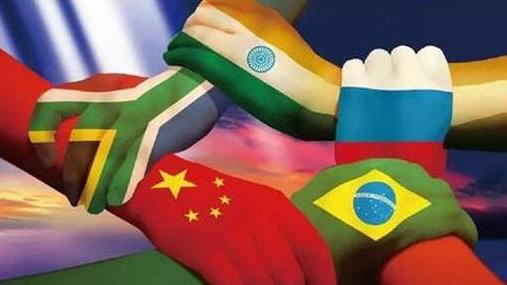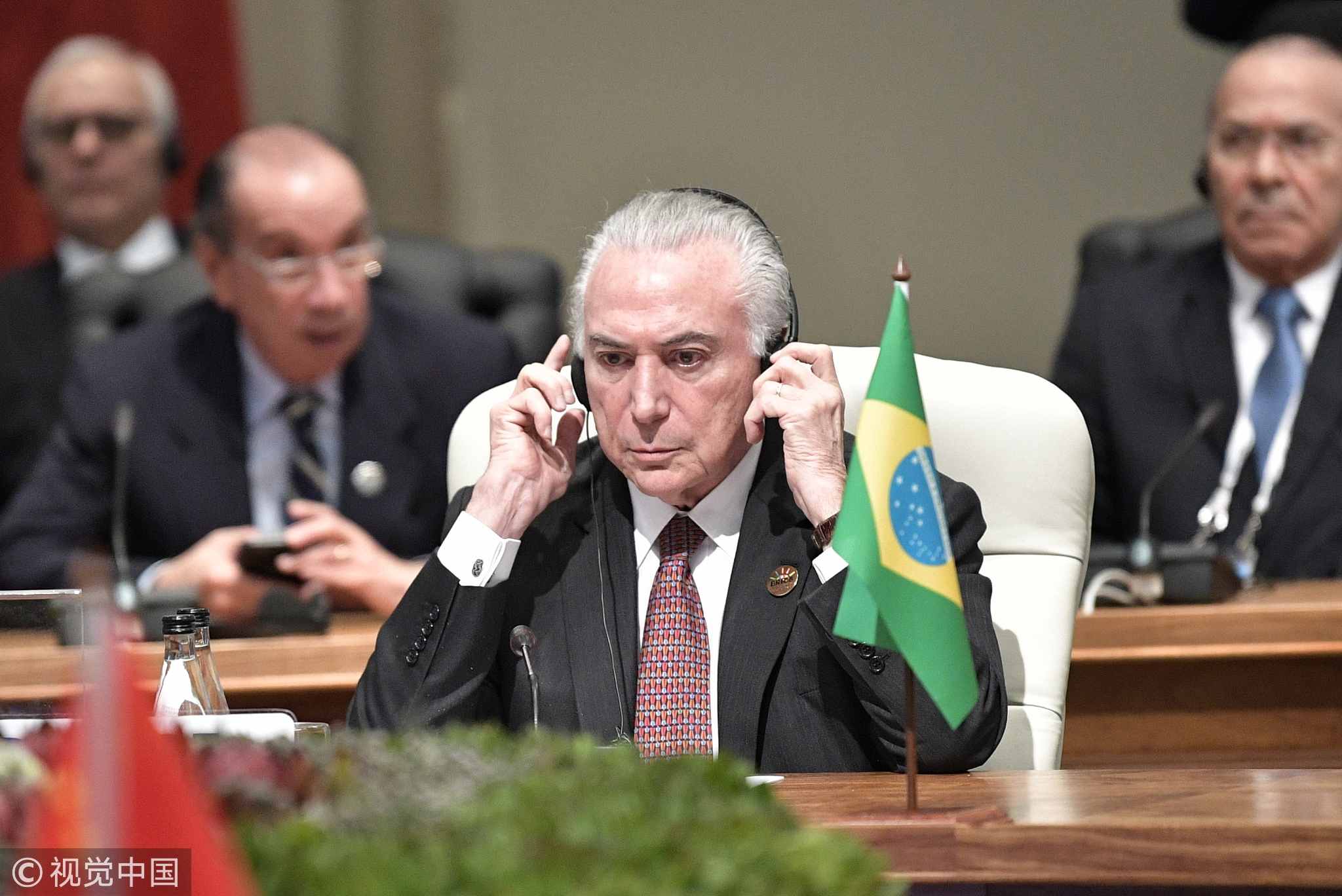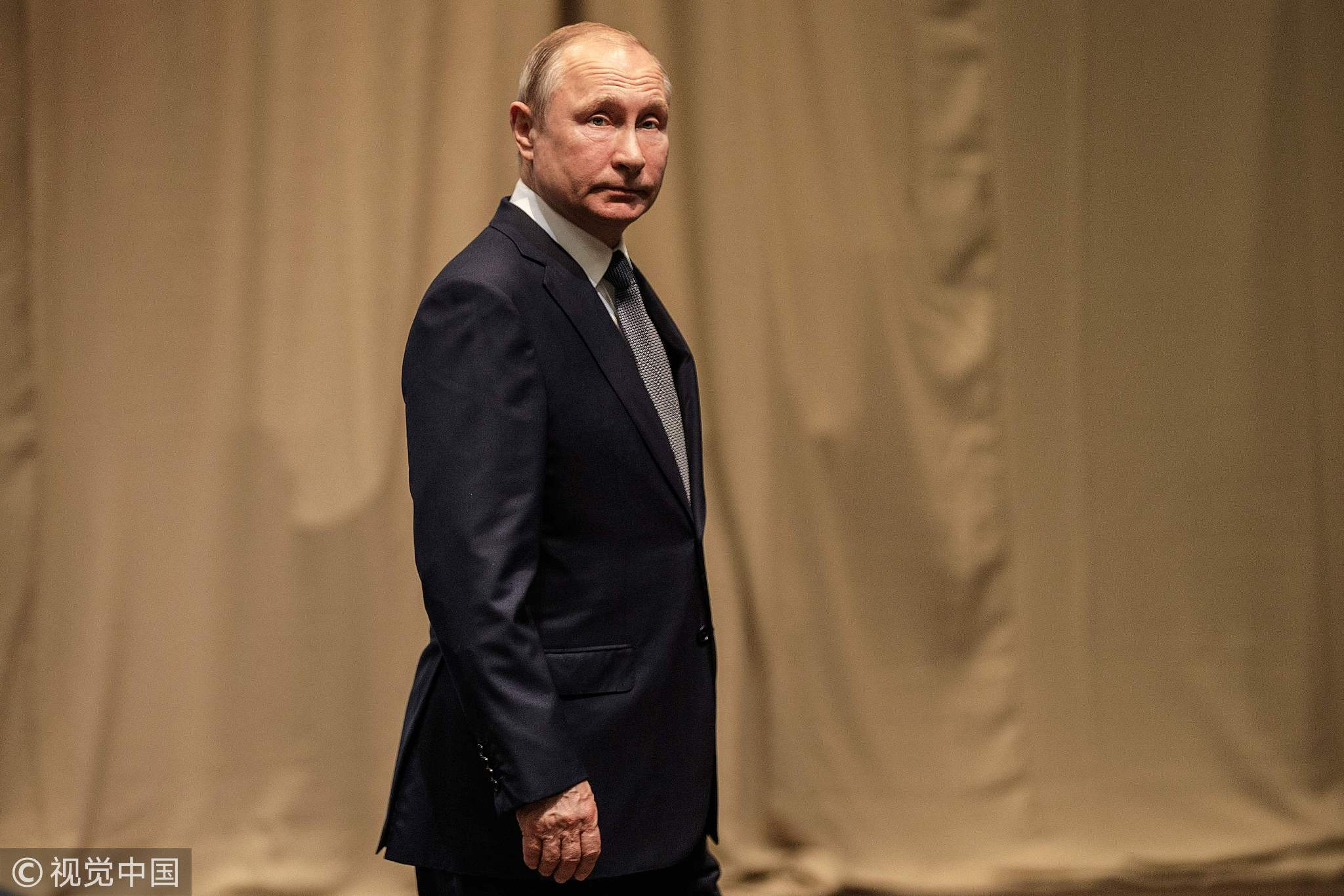
Opinions
10:28, 27-Jul-2018
Opinion: BRICS: Decoding the magic of inclusive growth
Updated
10:18, 30-Jul-2018
Wang Shanshan

Editor’s note: Wang Shanshan is a current affairs commentator and former Washington bureau chief of China Radio International (CRI), with 10 years of research on China-US relations. The article reflects the author's opinion, and not necessarily the views of CGTN.
Leaders from the BRICS countries – Brazil, Russia, India, China, and South Africa – are currently meeting in Johannesburg for their 10th summit. From this gathering, the bloc is sending out the clear signal that the world’s emerging economies are yearning for an inclusive model of growth characterized by equal participation, fairness, justice, and shared prosperity – and will resist attempts to derail them.
The theme of this year’s meeting, "BRICS in Africa: Collaboration for Inclusive Growth and Shared Prosperity in the Fourth Industrial Revolution", is reminiscent of the Summer Davos organized by the World Economic Forum in Dalian in northeast China last year. The Dalian meeting had a similar theme, namely "Achieving Inclusive Growth in the Fourth Industrial Revolution".

Brazil's President Michel Temer attends the 10th BRICS Leaders' Summit in Johannesburg, South Africa on Jul 26,2018./VCG Photo
Brazil's President Michel Temer attends the 10th BRICS Leaders' Summit in Johannesburg, South Africa on Jul 26,2018./VCG Photo
It’s no coincidence that the two gatherings share a similar theme. They represent a global call for a fresh approach to growth that focuses on sustainable development inclusive of better education, technological innovation, and environmental protection, instead of focusing narrowly on gross domestic product as the measurement of success.
China has been purposefully shifting its approach to economic growth from one that is focused on quantity to one that puts greater emphasis on quality development. Quality development is growth that is increasingly innovative, coordinated, and environmentally friendly. China’s economy appears to be growing more slowly now because the government is carefully applying the brakes.
But the slowdown is proving its worth. For example, the country has accelerated its pace of innovation, submitting some 48,000 international patent applications to the World Intellectual Property Organization last year. This makes China the world’s second-largest generator of patents.

Russia's President Vladimir Putin leaves after posing for a group picture during the 10th BRICS summit at the Sandton Convention Centre in Johannesburg, South Africa on Jul 26, 2018./VCG Photo
Russia's President Vladimir Putin leaves after posing for a group picture during the 10th BRICS summit at the Sandton Convention Centre in Johannesburg, South Africa on Jul 26, 2018./VCG Photo
Countries across Africa are aiming to improve their infrastructure, promote free trade, raise their level of industrialization and their status in the global value chain, and grasp the opportunities provided by what has become known as the “Fourth Industrial Revolution” characterized by mobile Internet technologies, big data services, and artificial intelligence. This drive for high-quality and inclusive growth resonates at the BRICS summit, where high-ranking officials and business leaders from South Africa have been sending out invitations for trade and investment opportunities in their country.
According to the “African Economic Outlook in 2018” report released by the African Development Bank, the trend towards the economic recovery of the continent is more promising than expected, with the rate of growth expected to reach 4.1 per cent in 2018 and 2019. Africa does not want to miss the historic opportunity that has arisen from the alignment of its agenda for inclusive growth with that of the BRICS and other developing economies.
While addressing the BRICS Business Forum on Wednesday, China’s President Xi Jinping has said that emerging markets and developing countries already contribute 80 per cent of global economic growth and nearly 40 per cent of global economic output, adding that in a decade this would rise to about half of the world economy at the current rates of growth. This outcome would bring a greater balance to global development.
But achieving inclusive growth is easier said than done. That's why “The Inclusive Growth and Development Report 2017” released by the World Economic Forum said that the Inclusive Development Index, an annual assessment of the economic performance of 103 countries in terms of their growth and development, inclusion, and inter-generational equity, saw a notable decline in 51 countries over the past five years.
There is a price to be paid for inclusive and sustainable development, which is that decision makers have to compromise short-term political benefits for the long-term public good. This takes the kind of vision, courage, and determination that is evident in the approach of the leaders at the BRICS summit.
Countries have to make decisions about how they want to engage with the wider world. Do they want an economy that is inclusive, outward-looking, and open to investment? Or do they want to embrace more mercantile policies of protectionism and isolationism?
The BRICS countries have given a clear answer. As Iqbal Surve, the chairman of the South Africa BRICS Business Council, says "We must be a strong advocate for free trade. Our countries need free trade; it's important for our economies. We’ve come to a situation where some countries that have reached a high level of growth today start to impose trade barriers. They advocated free trade and globalization 20 years ago. BRICS countries and other developing economies cannot be denied access to those markets."
"As Donald Trump's tariff salvos threaten global trade wars, leaders from the BRICS bloc are expected to band together in defense of the multilateralism the United States once championed," said a report by Reuters. The leaders of the BRICS countries have steadfastly agreed to stick with the approach of multilateralism and free trade in a bid to create an inclusive society with global partnerships that enable more and more people to enjoy the dividends of globalization and the new industrial revolution.

SITEMAP
Copyright © 2018 CGTN. Beijing ICP prepared NO.16065310-3
Copyright © 2018 CGTN. Beijing ICP prepared NO.16065310-3